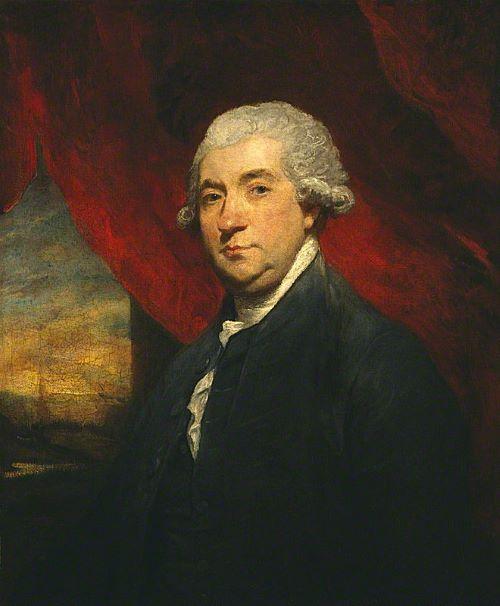“Not only relishing the sociable but actively contriving it”
Like the Georgian Papers Programme, Digit.En.S is a study of eighteenth-century Britain funded by the E.U. and based at a continental university.
Digit.En.S hosts the Digital Encyclopedia of British Sociability in the Long Eighteenth Century, designed to “Explore the wide range of topics related to British Sociability from 1650 to 1850 and learn about the circulation of models of sociability that shaped European and colonial societies.”
Be that as it may, I enjoyed Allen Ingram’s profile of James Boswell:
Digit.En.S hosts the Digital Encyclopedia of British Sociability in the Long Eighteenth Century, designed to “Explore the wide range of topics related to British Sociability from 1650 to 1850 and learn about the circulation of models of sociability that shaped European and colonial societies.”
Be that as it may, I enjoyed Allen Ingram’s profile of James Boswell:
…he was, quite simply, good company – attentive, amusing, intelligent and above all lively. [Samuel] Johnson, most clearly, and [Pasquale] Paoli, once exiled in England, became lifelong friends and were pleased to see him often during his annual spring visits to London from Edinburgh. Through Johnson in particular, Boswell became friends with a set of men he might not otherwise have met, or met so soon and so favourably. These included Edmund Burke, David Garrick, Joshua Reynolds and Oliver Goldsmith; but other friends, like John Wilkes, and various members of the Scottish nobility, were already part of Boswell’s circle, and would remain so – indeed, he even contrived a dinner in London in May 1776 that brought Johnson and Wilkes, the bitterest of political rivals, together in an atmosphere of sociability and mutual good humour, though the good humour found its focus in making jokes at Boswell’s expense.Boswell published essays, travel accounts, and his biography of Johnson in his lifetime, but he came back to life only in the 1900s when his private diaries were discovered and put into print.
But this was part of Boswell’s talent, not only relishing the sociable but actively contriving it. He could be immensely self-promoting, often in a highly embarrassing way, as at the annual dinner of the Company of Grocers in London in November 1790, in the presence of Prime Minister William Pitt, an honorary member of the Company, when Boswell sang the semi-satirical ballad, ‘William Pitt, The Grocer of London’, six times, apparently by popular acclaim, in a misguided attempt to curry favour from Pitt in his political ambitions. But Boswell seems to have been utterly beyond embarrassment, especially at large social occasions, and especially after consuming alcohol. . . .
Drinking for Boswell almost always took place within a social context. He was not particularly choosey, though, about the nature of that context, or about the location of his drinking. As long as there was company, he would drink: with lords and ladies, as at Northumberland House, where Trafalgar Square now is, where the set surrounding the Duke and Duchess of Northumberland congregated, as he did in London during his visit of 1762-1763; or with politicians and genteel tradesmen, as at the Grocers’ dinner cited above; or with his legal friends and acquaintances back in Edinburgh, as he did all his life; or with prostitutes in London, or Edinburgh, or anywhere, as he also did all his life; or, as he did returning to Edinburgh from Auchinleck in March 1777 with an old friend, Richard Montgomery, ‘at some low ale-house’, where ‘I drank outrageously’ and ‘arrived at Edinburgh very drunk’.
Boswell’s taste in women and in female society was if anything even wider than his taste in alcohol and his expectations of the kind of sociability that was possible from it changed the further down the social scale he went. Few if any of his sexual relationships were with women of the highest social class. With such women his expectations were similar to the sociability he enjoyed with men, with the bonus of their being female: he enjoyed their company and was able to flirt as an amusement rather than as a preliminary to anything. . . . [In contrast,] His relationship with the actress ‘Louisa’ (Anne Lewis) in London in 1762-1763…observes all the polite social niceties, with a mix of gallantry, wit and deference:‘Madam, I was very happy to find you. From the first time that I saw you, I admired you.’ ‘O, Sir.’ ‘I did, indeed. What I like beyond everything is an agreeable female companion, where I can be at home and have tea and genteel conversation. I was quite happy to be here. ‘Sir, you are welcome here as often as you please.’ (London Journal 115)The pay-off, however, when it comes is a level of physical reality far beyond ‘tea and genteel conversation’: ‘A more voluptuous night I never enjoyed. Five times was I fairly lost in supreme rapture. Louisa was madly fond of me; she declared I was a prodigy.’


No comments:
Post a Comment